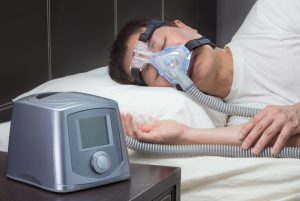Heart failure is a common condition. In Europe, more than 10 million people suffer from cardiac insufficiency. For a variety of reasons, the heart can no longer produce a sufficiently high cardiac output to supply the body with enough oxygen and enable normal metabolism. This can be caused by a reduced pumping power (systolic heart failure) or by a disturbed ability to relax (diastolic heart failure) of the heart muscle. However, a novel drug is said to show promise in relieving heart failure, which is associated with sleep apnea and a shortened lifespan.
New Drug is Said to be Effective in Heart Failure and Sleep Apnea
The drug, known as AF-130, was tested in an animal model at Waipapa Taumata Rau, University of Auckland, where researchers found that it improved the heart’s pumping ability but, just as importantly, prevented sleep apnea, which shortens lifespan. People who suffer from sleep apnea stop breathing during sleep. The airways of those affected are so narrowed that breathing is not only significantly more difficult, it stops completely. Not only is the new drug beneficial for heart failure, it can also relieve apnea, for which there is currently no drug other than CPAP (a breathing device), which is poorly tolerated.

The part of the brain that sends nerve impulses to the heart also controls breathing, so this drug does a dual job of reducing the “fight-or-flight” response while also stimulating breathing to stop sleep apnea. These results have real potential to improve the well-being and life expectancy of people with heart disease.
Another exciting factor for the scientists, who published their results in Nature Communications, is, that the drug will soon be approved by the FDA, albeit for a different health issue, paving the way for studies on the people over the next year or two.
How Sleep Habits and Heart Failure Are Related
Restful sleep also plays an important role for the heart. In fact, research shows that sleep problems can play a role in the development of heart disease, but healthy sleep habits are associated with a lower risk of heart failure.
This observational study examined the relationship between healthy sleep patterns and heart failure and included data from 408,802 UK biobank participants aged 37 to 73 years at the time of enrollment (2006-2010). The incidence of heart failure was recorded up to April 1, 2019. The researchers recorded 5,221 cases of heart failure during a median follow-up of 10 years. Researchers analyzed sleep quality as well as general sleep patterns. Sleep quality measurements included sleep duration, insomnia and snoring, and other sleep-related characteristics, such as: whether the participant was an early riser or a night owl and whether they were tired during the day (likely nodding off inadvertently or falling asleep during the day).
Risk of Heart Failure Reduced by 42 Percent
The healthy sleep score the researchers created was based on evaluating these five sleep patterns. Sleep behavior was recorded using touchscreen questionnaires. Sleep duration was divided into three groups: short, or less than 7 hours a day; 7 to 8 hours a day, 9 hours or more a day. After accounting for diabetes, high blood pressure, medication use, genetic variations, and other covariates, those adults with the healthiest sleep patterns (early risers, 7-8 hours of sleep per day, and no frequent insomnia, snoring, or excessive daytime sleepiness) had a 42% reduction in the risk of heart failure compared to those with unhealthy sleep patterns. They also found that the risk of heart failure was
8% lower for early risers
12% lower in people who slept 7 to 8 hours a day;
17% lower in those who did not frequently suffer from insomnia; and
34% lower in those who didn’t experience daytime sleepiness.
The results show that sleep and heart diseases are linked and underline the importance of improving overall sleep patterns to prevent heart failure.







